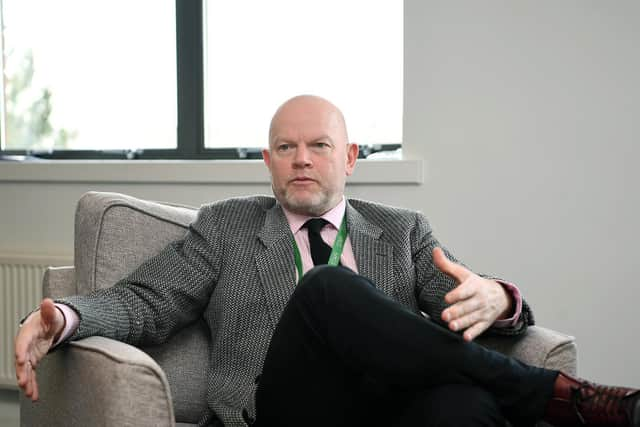School leaders in Leeds urge government to focus on inequalities across all of education rather than "white privilege" labels
and live on Freeview channel 276
MPs have said that terminology like "white privilege" may have contributed towards a "systemic neglect" of white working-class pupils who need support.
The Commons Education Select Committee said schools should consider whether the promotion of such "politically controversial" terminology is consistent with their duties under the Equality Act 2010.
Advertisement
Hide AdAdvertisement
Hide AdDisadvantaged white pupils have been badly let down by "muddled" policy thinking and the Department for Education (DfE) has failed to acknowledge the extent of the problem, the report said.


It stated that 47 per cent of free school meal-eligible (FSM) white British pupils did not meet the expected standard of development at the end of the early years foundation stage in 2018/19, which is around 28,000 children and in 2019, just 17.7 per cent of FSM-eligible white British pupils achieved at least a strong pass (grade 5 or above) in English and maths at GCSE, compared with 22.5 per cent of all FSM-eligible pupils. This equates to nearly 39,000 pupils.
The committee found these disparities particularly striking because white people are the ethnic majority in the country - and yet FSM-eligible white British pupils are the largest disadvantaged group.
During its inquiry, MPs heard factors which combine to put white poorer pupils at a disadvantage, but were not convinced by the DfE's claim the gap can be attributed to poverty alone.
Advertisement
Hide AdAdvertisement
Hide Ad"White working-class pupils underperform significantly compared to other ethnic groups, but there has been muddled thinking from all governments and a lack of attention and care to help these disadvantaged white pupils in towns across our country. If the Government is serious about closing the overall attainment gap, then the problems faced by the biggest group of disadvantaged pupils can no longer be swept under the carpet."
However, SHINE, an education charity that works with teachers, schools, and other organisations, helping disadvantaged children in the North of England said the government ought to look at inequalities across the board while the chief executive of an academy trust that manages several Leeds schools said the focus should be "less on labelling and much more on the strategies".
Sir John Townsley, CEO of The GORSE Academies Trust, said: "The GORSE Academies Trust is really pleased that this key area of policy development is receiving appropriate attention. The performance of great numbers of children from the poorest white communities across our country is exceptionally poor, and stubbornly so.
"GORSE is recognised as one of the leading trusts in the country in changing the educational deal for those children. We have focused less on issues on labelling and much more on the strategies that cause generations of under achievement within families to be overturned."
Advertisement
Hide AdAdvertisement
Hide AdThe recommendations put forward in the report were a strong network of family hubs should be introduced across the country to boost parental engagement and mitigate the effects of multi-generational disadvantage and funding needs to be tailor-made at a local level, initiatives should focus on attracting good teachers to challenging areas, and vocational and apprenticeship opportunities should be promoted.
Sir John added: "Our approach has been centred around the following principles: brilliance in Early Years education; exceptional standards of behaviour which at times is very tough on white disadvantaged children; ensuring a supply of brilliant teachers into target schools; providing pupils from poorer white backgrounds with opportunities outside of the curriculum normally associated with the Independent school sector; employing strategies within the classroom which are transformational; ensuring that every parent, however challenging, is routinely contacted and partnering with us in our work."
Dr Helen Rafferty, Interim CEO of education charity SHINE, said: “The effects of long-term, entrenched disadvantage on outcomes for children must be tackled at the local level, and in context. Targeted funding and support for parents, families and communities are essential in addressing the gaps experienced across low-income communities in the North of England.”
